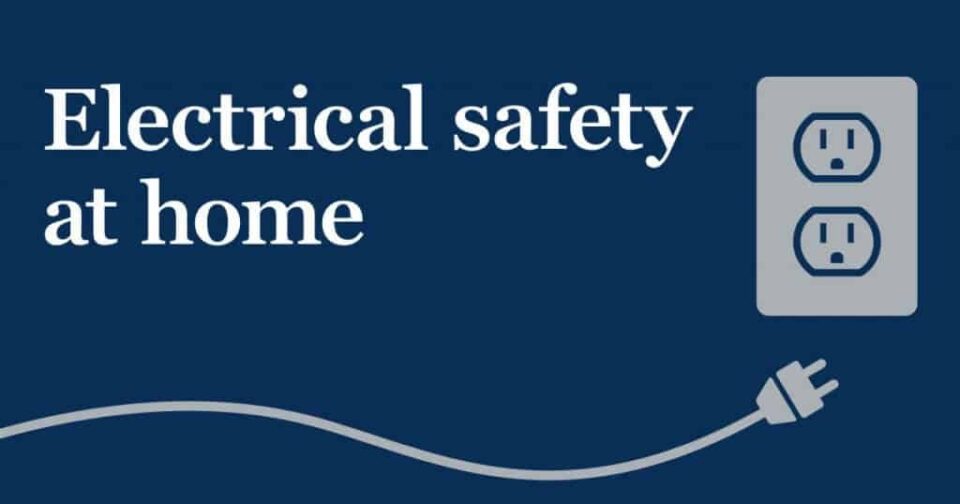Electrical safety is vital for homeowners. Ignoring small issues can cause fires, shocks, and injuries. Proactive safety protects your family and saves money. Most hazards are preventable with knowledge—whether you have old wiring or many gadgets, understanding warning signs, making small fixes, and calling professionals when needed reduce risks. During updates or renovations, ensure fixtures and systems are installed correctly—improper installation often causes problems. Kids, teens, and pets are especially at risk, so childproofing and safe habits help prevent accidents. For help installing fixtures and improving comfort, see this ceiling fan guide. Safe upgrades and routines can make a big difference.
Conduct Regular Electrical Inspections
Routine checks are foundational for a safe home. Signs such as flickering lights, warm-to-the-touch outlets, or circuit breakers that trip frequently require immediate attention. Inspections are crucial for houses that are more than 40 years old or for properties that have undergone significant DIY or professional renovations. Consulting an experienced electrician York SC ensures that outdated components and potential hazards are correctly identified, keeping your home’s wiring up to modern safety standards.
Install Ground Fault Circuit Interrupters (GFCIs)
Water and electricity are a dangerous mix. GFCIs are essential in moisture-prone areas, such as bathrooms, kitchens, basements, garages, and outdoor spaces. These devices immediately cut off electricity if they detect a current leak, potentially preventing life-threatening shocks. Test your GFCIs monthly using the “test” and “reset” buttons—they should trip when tested, indicating protection is active. The U.S. Consumer Product Safety Commission recommends GFCIs for all critical locations.
Unplug Unused Appliances
Leaving small appliances plugged in—like toasters, coffee makers, and phone chargers—drains energy and can pose a fire risk if left unattended. The risk increases with older or faulty devices, as short circuits can happen unexpectedly. Get in the habit of unplugging electronics when they’re not in use, and inspect cords for wear before plugging them back in. This not only conserves energy but also extends the lifespan of appliances, making your home safer and more efficient.
Use Extension Cords Sparingly
Extension cords should be a temporary solution, not a substitute for permanent wiring. Overusing extension cords or running them under rugs and furniture can cause overheating and increase the fire risk. If you constantly need more outlets, consider calling a licensed electrician to install additional ones where needed. For safe wiring practices and helpful tips, refer to a ceiling fan installation guide, which also emphasizes proper electrical handling and load management. Never use damaged cords or daisy-chain multiple extension cords together, as this can further amplify the risk.
Choose the Correct Light Bulbs
Always use bulbs that match the recommended wattage for your fixtures, and consider upgrading to LEDs, which produce less heat and are more energy-efficient. Using a bulb with wattage that’s too high can overheat fixtures and potentially ignite nearby materials. Review your home’s lamps and overhead lighting to ensure all bulbs are compatible with their sockets. The U.S. Department of Energy provides tips for safe, efficient lighting upgrades.
Avoid Overloading Circuits
Plugging too many devices into a single circuit can overwhelm your home’s wiring, leading to hot outlets, flickering lights, or tripped breakers. Always distribute electrical loads evenly by using multiple outlets, and avoid plugging too many high-wattage devices into a single area. Never connect multiple power strips together, and remember that surge protectors don’t prevent overloading.
Childproof Your Outlets
Children are naturally curious, and open electrical outlets can be extremely hazardous. Use tamper-resistant receptacles (TRRs) or install plastic safety covers to block access to unused outlets. These solutions prevent foreign objects—such as keys, hairpins, or toys—from coming into contact with live electrical parts, drastically reducing the risk of shock or burns.
Seek Professional Help for Major Electrical Work
Attempting major electrical repairs without proper training is dangerous. Upgrading panels, wiring, or troubleshooting should be done by a licensed electrician, as it’s safest and often legally required to protect insurance and comply with codes. Staying vigilant, adopting safe habits, and working with professionals help minimize hazards and ensure a sense of peace of mind.
Prioritizing Electrical Safety for Peace of Mind
Electrical safety starts with awareness and consistent care. From routine inspections to proper appliance use and professional maintenance, every precaution helps reduce the risk of fire, shock, and costly damage. Simple habits—such as using the right bulbs, avoiding overloaded circuits, and unplugging unused devices—make a significant difference in protecting your home and loved ones. By staying proactive and relying on qualified electricians for complex work, homeowners can ensure a safe, efficient, and worry-free living environment.

